The Ministry of Human Development, Families, and Indigenous Peoples’ Affairs and the Maya people of the Toledo District continue to be at odds over the draft Maya Customary Land Tenure Policy. Throughout January 2023, consultations have taken place within the district’s Maya villages to dialogue on the critical aspects of the policy, specifically Paragraph Five, which proposes only to recognize 0.75 to 1.8 mil.es from the center of the town as registered as Maya customary lands. The Ministry has emphasized that the Government of Belize (GOB) is not limiting communal lands to one kilometer but keeping the door open for input and mutual agreement by all interested parties.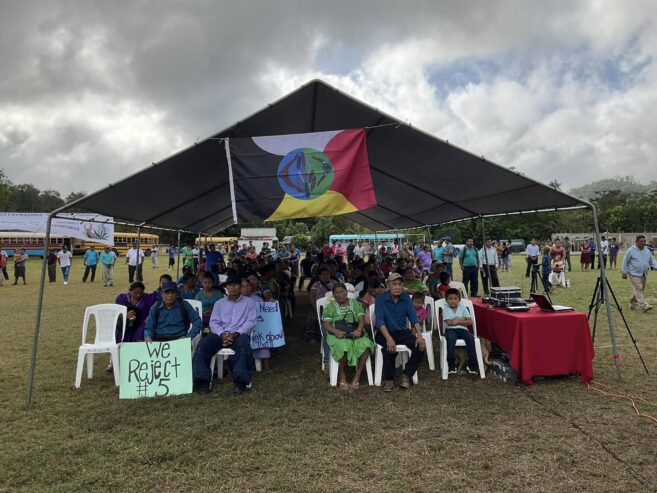
The Belizean Maya community has been fighting for communal land rights for almost a decade. In 2013, the Court of Appeal of Belize declared, “Maya customary land tenure exists in all of the Maya villages in the Toledo District and constitutes property within the meaning of the protections guaranteed by the Belizean constitution.” However, the Maya Leaders Alliance appealed a portion of the judgment as they claimed the Government of Belize was dismissing their constitutional claim and request for relief after oil drilling, logging, grazing, and surveying was approved on what they believed to be Maya land.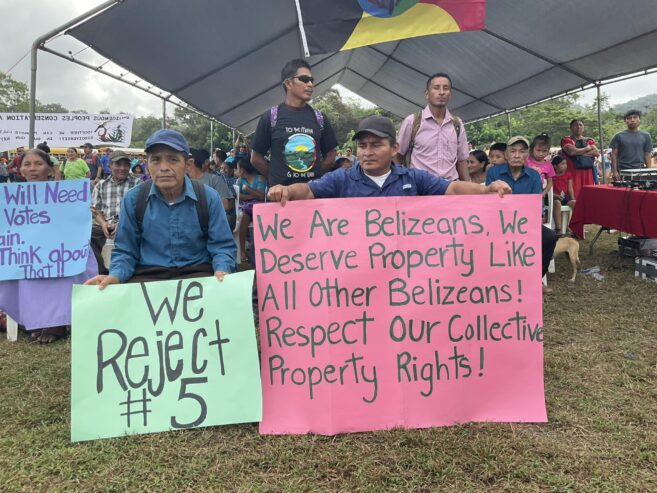
The Caribbean Court of Justice (CCJ) heard the case in 2015 and found the GOB breached the Maya community members’ right to protection of the law by failing to ensure that the existing law system recognized and protected Maya land rights. Through several more litigations and consultations, GOB agreed to establish a commission to implement the court’s ruling by creating the Maya Customary Land Tenure Policy.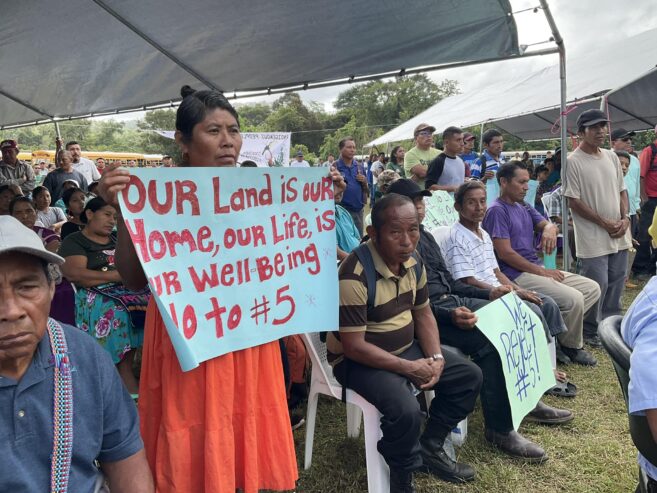
While GOB has been drafting this policy with the Maya community to ratify it into law, they are now at a standstill over a draft section. Paragraph five of the draft proposes a conceptual model for Maya villages to apply for land areas (within one kilometer, two kilometres, or three kilometres of the center of their villages) as automatically registered Maya customary lands. This automatic registration means that it will not require proof of customary use. It also allows the application for additional lands to be registered beyond the automatically registered areas as Maya customary lands. Evidence or proof of customary land use would be required for these further areas.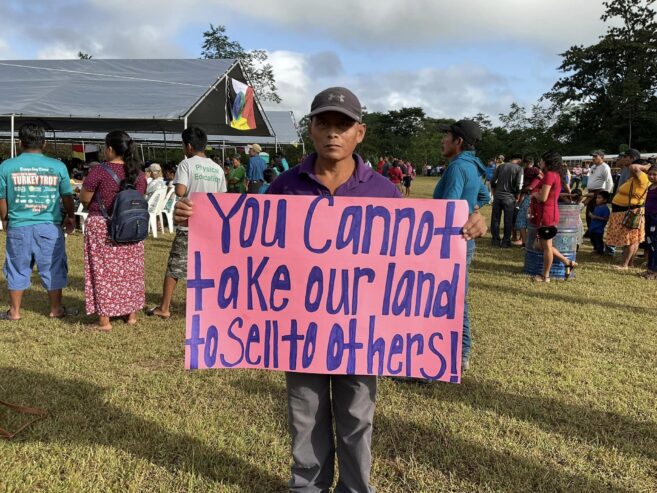
According to the Maya community, this poses a severe threat to the livelihoods of the Maya communities. “This approach not only leaves many residential homes unprotected but also neglects to recognize and safeguard crucial farming areas essential for house materials, hunting, and spiritual survival. It is alarming that this draft policy fails to adhere to the Caribbean Court of Justice Consent Order of 2015, which mandates a good-faith approach concerning indigenous land rights. The disregard for proper consultation and recognition of these vital aspects of Maya life undermines the principles of justice and fairness that should govern such policies,” said the Belize Indigenous Alliance for Collective Resilience (BIACR) in a press release.
Another issue for the Maya community is that the draft also makes provision for negotiations with third parties who may already have private lands within the boundaries of the automatically registered areas as Maya customary land. “We firmly assert that the Government of Belize must be held accountable for upholding its commitment, as outlined in their Manifesto, Plan Belize, to honor international law agreements, as specified in our constitution,” said BIACR. According to the Ministry, these provisions do not affect the Maya community negatively but propose that the application process include a democratic vote to ensure that the villages agree that their land be registered as communal land.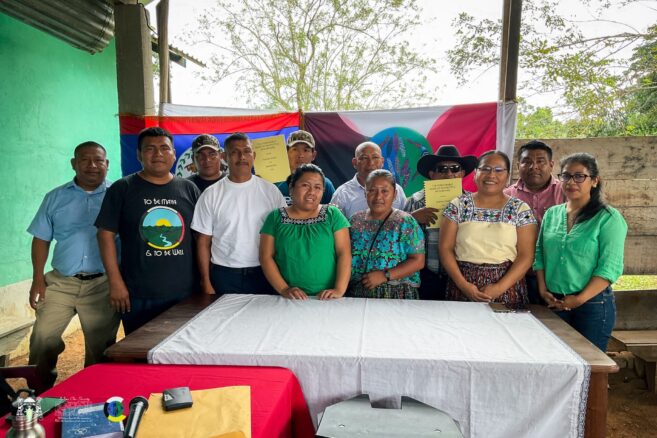
The Maya community continues to urge GOB to revisit the drafting process of the Maya Customary Land Policy with “sincerity and inclusion.” GOB has also reiterated its commitment to the rights of Indigenous Peoples and all Belizeans.
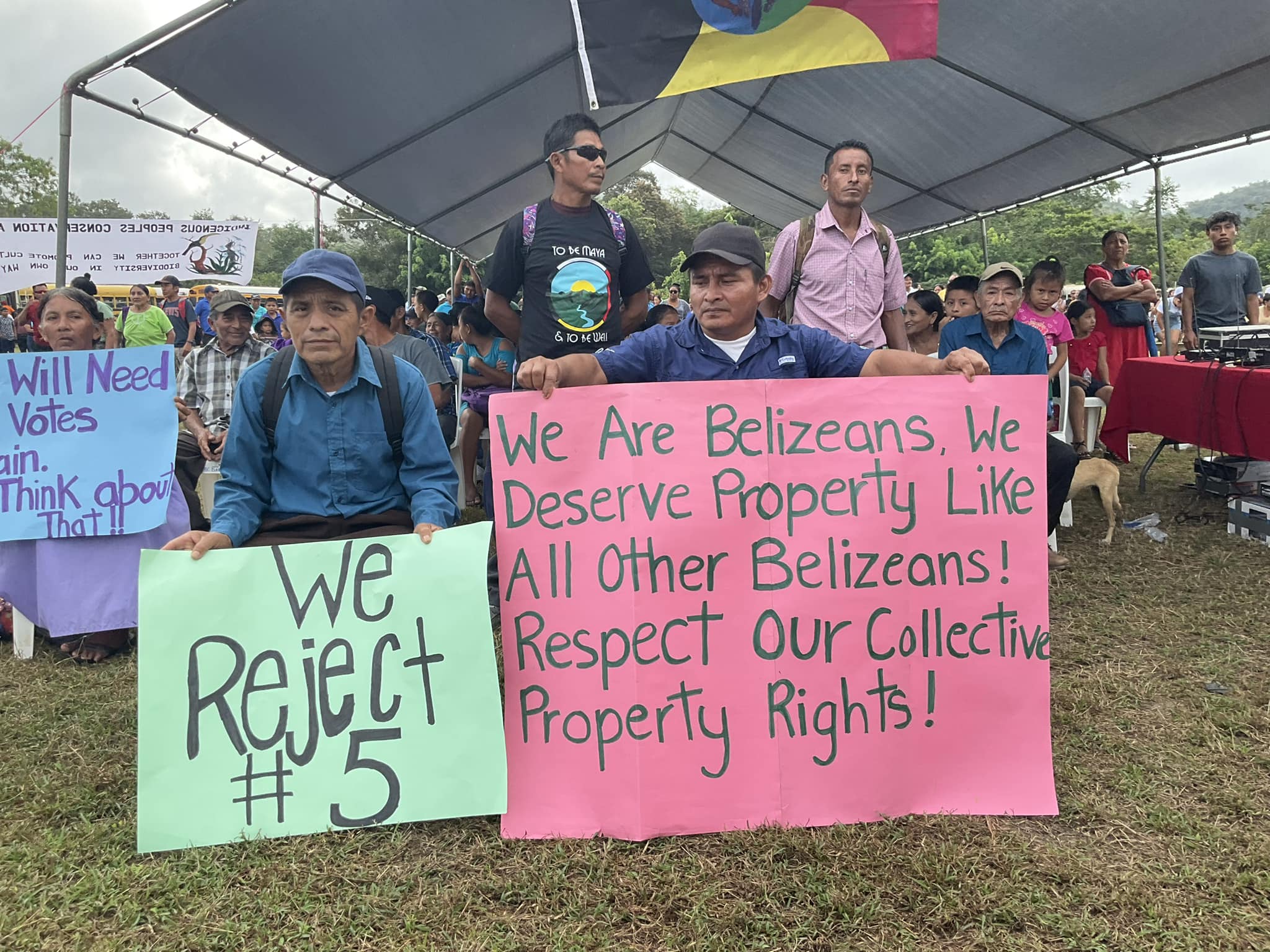
Share
Read more

